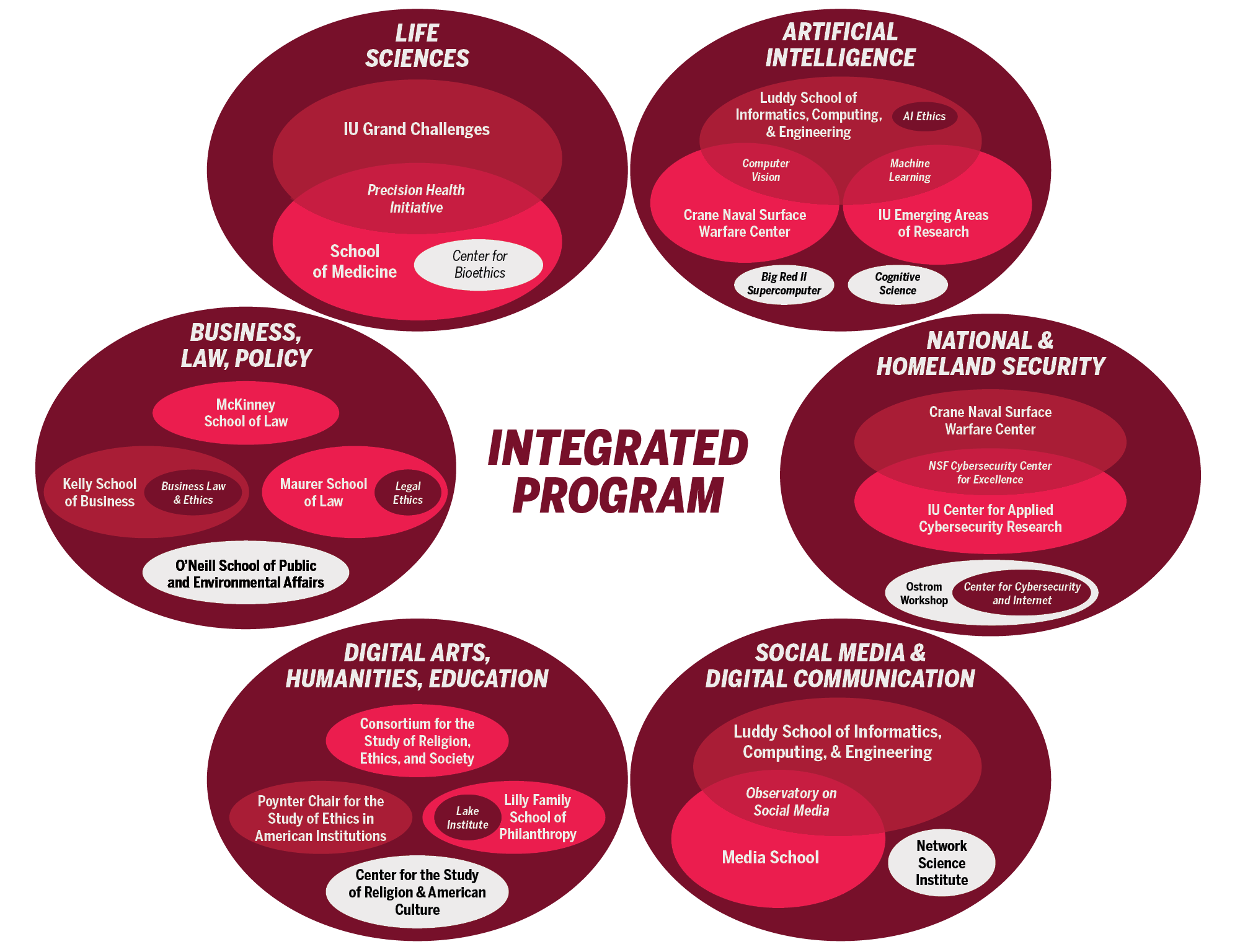In order to organize and structure its approach to developing tools for cultivating character and ethics around (and within) digital environments, we have organized our project into six broad, interrelated areas: Life Sciences; Social Media & Digital Communication; Artificial Intelligence; Business, Law, Policy; Digital Arts, Humanities, Education; and National & Homeland Security. In each of these areas, we have identified a range of issues, resources, and institutions. Most of these are associated with Indiana University, although we have also worked to identify as many local and regional partners as possible.

In addition to organizing around our established resources, we have also identified six common attributes inherent in digital technologies that provide common issues, technologies, and approaches to consider. These common attributes help explain why these particular problems are so complex and add urgency to our project of preparing future generations to deal with them.
Common Features of Digital Technologies
- Speed: Many digital technologies enable rapid action, such as instantaneous communication. Such speed reduces the amount of time available to reflect on the consequences of actions or their ethical implications. Moreover, digital technologies evolve rapidly. This means both that efforts to address the ethical issues they present or exacerbate must evolve as well.
- Scale: Digital technologies operate at massive scale, allowing individuals to affect billions. Other digital technologies, such as those that facilitate genetic modifications to plants and animals, may affect even larger populations. The ability of our individual actions to affect more people (or businesses or countries) than ever before makes it essential that we equip individuals to appreciate the consequences of their actions and the need to take responsibility for them.
- Interconnectedness: Closely related to the scale at which many digital technologies operate is the extent to which they are interconnected. The interconnectedness that digital technologies facilitate mean not only that individual actions may have wide consequences, but also that those consequences will likely occur in different societies, cultures, and legal systems. In addition, interconnections on the Internet are not evenly distributed or similar in structure, leading to vastly different forms of social and political interaction.
- Accessibility: digital technologies have put enormous power into the hands of a wide range of people and institutions. Individuals without significant resources can reach audiences of millions. Tools such as CRISPR are rapidly expanding the range of people who can manipulate genes. Digital technologies have democratized opportunity and risk. This heightens the importance of early and widespread training in recognizing and confronting ethical issues.
- Pervasiveness: ethical issues are created or exacerbated by digital technologies in every walk of life. Even people who think of themselves as having no interest or expertise in digital technologies are certain to confront ethical issues mediated by these technologies. Just as no one can truly life off the grid, no one is immune from ethical challenges in digital contexts, again heightening the importance of broad and broadly applicable training in character and ethics
- Complexity: the ethical issues presented by digital technologies are often quite complex and addressing them responsibly requires some understanding of not just values and ethical decision-making, but also of science, technology, law, history, culture, and other subjects. It is essential, therefore, that we train students to think critically, and to possess the appropriate range and degree of knowledge necessary to thoughtful, values-based decisions about how and when they will engage with digital technology.

